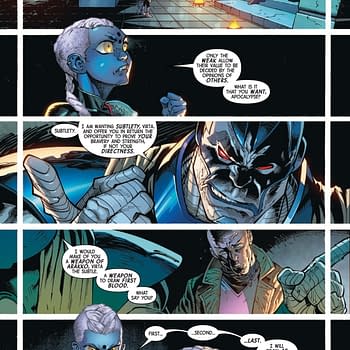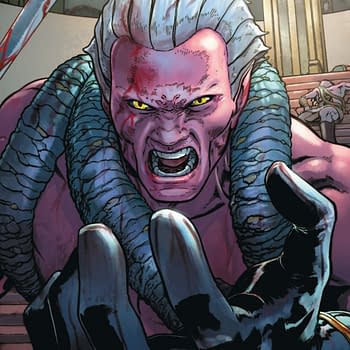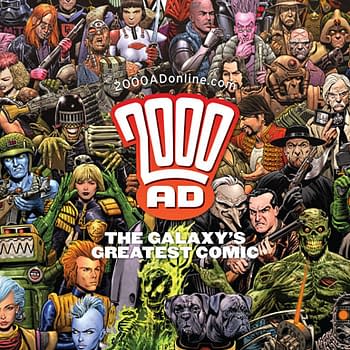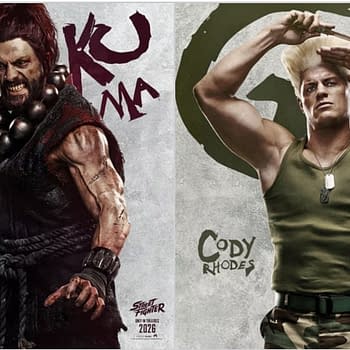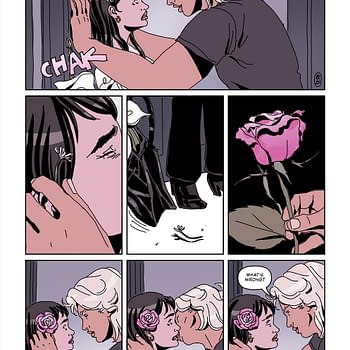Posted in: Comics | Tagged: Comics, entertainment, freakangels, kickstarter, paul duffield
Fairy Fails – Paul Duffield's Comic For Children In An Adult Industry
Paul Duffield writes,
It's hard to introduce yourself and your work without sounding like Troy McClure, so with that in mind, hello! I'm Paul Duffield. If you've got no idea who I am, check out Freakangels and The Firelight Isle. (How did I do?)
For the past three years, I've been working in various different capacities for a children's comic called The Phoenix. It's a remarkable thing – a home-grown weekly magazine that publishes pure comics content from some of the best creators in the UK (and a few abroad) – and every issue is a joy to read. It's all core-values: storytelling, storytelling and more storytelling.
The magazine deliberately harks back to the days of yore when comics like The Eagle and Bunty serialised adventure and drama for readerships that would make most modern publishers salivate, but it doesn't do so in blind nostalgia. It's lead by its creators, and the comics it presents are fresh and exciting. See Star Cat, Pirates of Pangaea & Corpse Talk for proof!
My own contribution has mainly been as a designer, but I've also written and drawn a number of short stories for The Phoenix, which I hope live up to the fantastic standard on show in the rest of the magazine! I'm self-publishing these short stories as a 42-page collection: Small Tales and Fairy Fails, and running a Kickstarter to raise printing costs.
There are all sorts of perks, and now's the perfect time to back the project: it's a guaranteed pre-order since the initial goal has been reached, the content is already produced and ready to go to print, but there are still some great stretch goals to hit, each of which will add to the quality of the book you end up with (thicker paper stock, spot varnish, a better printing press)!
But, despite being a thinly-veiled plug for my own book (go on, pre-order it, you know you want to), this article is about something more.
Whilst working at The Phoenix, I've noticed something that happens when comics for children interact with the comics industry at large: they're often ignored. No matter how successful, worthy, or how exciting children's they are. They're just not for the majority of people who run and patronise the review sites, conventions and publishers that make up the structure of the industry, and this is an odd picture.
Comics used to be for kids, right? They used to be so much for kids that we've spent decades trying to rid ourselves of that exact image, and I'm worried that in our desperation to prove that comics can be for adults, we're throwing the baby out with the bathwater (aha, see what I did there…)
The mantra "comics aren't just for kids" has been repeated over and over in a weary voice to ignorant friends, family and acquaintances so often that we're all sick to death with it. But the problem with mantras is that if you repeat the same thing ad-infinitum, you end up stuck in a conceptual rut. "Comics aren't just for kids" has in many cases become "comics aren't for kids" and in some cases has morphed into "eew, comics for kids, what do you think I am, an 8 year old?".
There are publishers out there who have great catalogues for younger audiences, and in many ways we're seeing a rebirth of children's comics right now (think First Second, Scholastic or BOOM), but at exactly the same time, it feels like that's a part of the industry almost entirely unconnected to and unacknowledged by the structure that is "mainstream" comics.
The truth is, large parts of comics haven't grown up completely yet – like someone in their early twenties: scared of being seen as juvenile, and terrified of actually getting old. We comickers revel in the things we loved when we were younger, all the while forgetting that those things were so damn good because they were made in an era where entertainment for kids was booming and full of exciting new things.
Whilst many people (including me if I choose not to think about it too hard) are obviously happy to languish in the eternal twilight of the 80s, I can't help but feel that we do so at the expense of something intangible but vital.
What are the 12-year-olds of today going to remember with intense nostalgia when they've grown up?
PS: The answer is totally my book, which is why you feel suddenly compelled to pre-order it.
Rich adds: I just did…
















